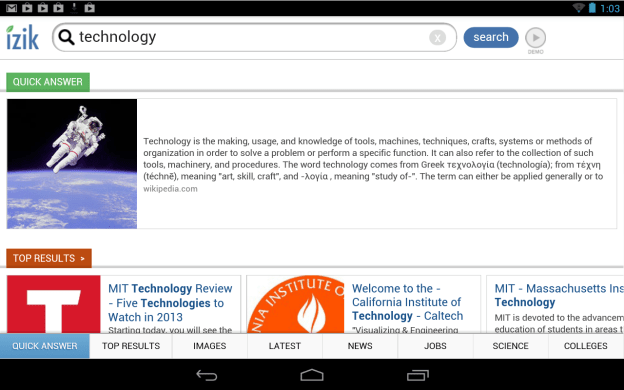
Move over Google and step aside Bing. Blekko has launched Izik, a search engine designed with tablet owners in mind. The new search service hopes to lure in users with its much more rich and curated information, and seems a lot like Siri or Google Now than anything else.
While your average search engine will smother you with links to the most popular websites, the average desktop search service has yet to really jump too far from the directory-oriented format. Izik wants to change that for tablet owners everywhere with an experience that caters to the desire to quickly acquire information in a very visual, and touch-friendly experience. Content in Izik instead flows to the user in a series of topics including News, Images, Quick Facts, Jobs, and more. Whatever search term you enter, Izik will help you along and do some of the catering for you, so you don’t have to visit five or six websites to get all the information or the correct results you were looking for. It’s certainly nothing new; Google, Bing, and Siri all offer up curated content of all shapes and sizes, but none of them have yet to curate it exclusively for tablets, and often make something suitable for both mobile and desktop services. In the end, Izik will need to gain some serious popularity if it hopes to be a contender, and while not all tablet-only products are meant to be, if Izik can prove it’s smarter than Google or Bing, users might just bite.
Izik is available now from the App Store as well as from the Play Store – sorry Surface owners, you’ll have to stick with Bing for now.


